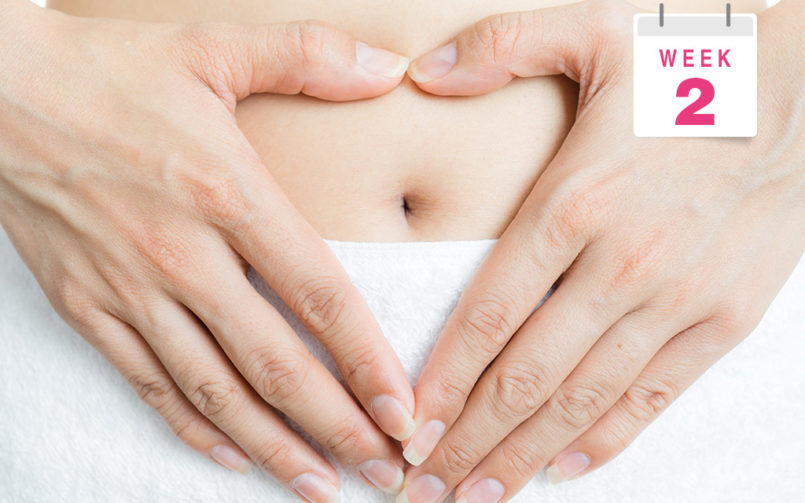
Week 2 Pregnancy – Fetal Growth, Tips and Symptoms
Stage – 1st Trimester
Weeks left for delivery – 38
You’ve just completed the first week of pregnancy and are still not pregnant technically, but you are a step closer to your goal. Your body is preparing for ovulation in the 2nd week.
You should focus on the fertility signs of your body and get closer to your partner to improve the chances of conception. From the first day of the last period, your 40-week countdown and due date will be estimated by your gynecologist.
Symptoms
Here are some early symptoms you might experience by the second week indicating your pregnancy –
- Mood swings
- Missed period
- Swollen and tender breasts
- Fatigue
- Vomiting and nausea
- Frequent urination
Fetal Growth
Initially, you won’t have any sign of fetal growth, as your body is already getting ready for it. An egg is being matured in the ovary and is preparing to break free. At the same time, the uterus lining is expanding and getting thicker to hold a new life. Ovulation will occur at the end of the week as your ovary releases the egg in fallopian tubes.
After ovulation, an egg can survive for a maximum of 24 hours. There is no need to have intercourse on the same day as ovulation. The fertile cervical mucus can hold sperm for a maximum of 5 days. During the second week, you can have sex every next day or plan to have sex a day or two before having ovulation to place the sperm the right way and prepared for the egg.
Millions of sperms travel to the egg, but only a few strongest and healthiest sperms can survive and reach the fallopian tube. Only one sperm will be able to make it to the egg. The egg is fertilized only when the sperm joins it.
Tips for Healthy Pregnancy
Once you get to know about ovulation patterns, plan to have sex when you are most fertile. Usually, it is a day before the day of ovulation. This way, you can give time to sperms to make it to the fallopian tube. Have sex every day before ovulation to improve the chance of conception.
Also, engage in healthy habits to prepare your body. Before getting pregnant, take prenatal vitamins every day to supplement your diet with all vital nutrients like folic acid. A woman needs around 400mg of folic acid, according to the CDC. It can control the risk of congenital disability. Here are some other ways for a healthy pregnancy –
- Balanced diet
- Manage your weight
- Regular exercise
- Avoid caffeine and alcohol as much as possible
- Manage your stress